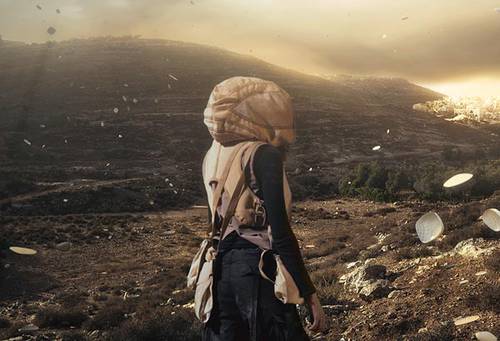
The 66th edition of the Berlin Film Festival opened this week.
photo: visitberlin.de
Berlin is overcome with Hollywood fever this week as the 66th edition of the International Film Festival opened in the German capital last night. It’s quite easy to be overwhelmed by the festival’s rich program amid the innumerable collisions between film, fine art, and Hollywood glamour. The Hamburger Bahnhof museum also joined in on the celebrations, aligning its showing of German artist Julian Rosefeldt‘s “Manifesto,” starring Cate Blanchett, with the film festival.
Swinton, McCabe, and Roth observe Berger over five years as he bears witness to a dwindling farming community.
Photo: e-flux
On Saturday the 13th, four distinct essay films come together as a full-length feature film: “The Seasons in Quincy: Four Portraits of John Berger.” Tilda Swinton, Colin MacCabe, and Christopher Roth have created this portrayal over the past five years, exploring British art historian John Berger’s identity as a storyteller, critic, and intellectual as he observed and lived among a village of subsistence peasant farmers. The work seeks to give insight into the points of convergence of Berger’s work and the character of the Alpine town he has lived in for 40 years.
Bailey and Barbato use interviews with Mapplethorpe and those close to him to make a portrait of the photographer.
Photo: via Wikimedia Commons.
“Robert Mapplethorpe: Look at the Pictures,” a film by Fenton Bailey and Randy Barbato, explores the artist’s archives to examine the life of the influential photographer. Using footage not yet seen in which the artist speaks about himself, as well as interviews with those who lived, loved, and worked alongside him, Bailey and Barbato bring Mapplethorpe into a critical landscape. There are screenings the 14th, 15th, 17th, and 20th throughout Berlin, so you can read more into one of the most famous and controversial photographers of New York City.
Omer Fast leaves viewers unsure about the protagonists, who are victims of grief.
Photo: Omer Fast
There are numerous works well worth seeking out, including screenings included in the program of The Forum Expanded, which extends the reach of the Berlinale into the realms of experimental films and video art.
“Continuity” (2016), showing on the 13th and 14th, is the work of Berlin-based filmmaker and artist Omer Fast; it centers on a middle-aged German couple who ritualistically invite young men into their home after having lost their own young son. The state of the relationship between the spouses, as well as the fate of their young guests, is restlessly unclear throughout the film, up until the conclusion. It is a feature length version of the short film from 2012, which the artist showed at Documenta 13.
Amin explores landscape and territory from political vantage points.
Photo: Heba Y. Amin
“Kama Tohalleq al Teyour /As Birds Flying”, a video work from Heba Y. Amin, is screening on the 14th and 15th. Amin is an Egyptian visual artist who often addresses topics of territory, technology, urbanism, and inhabitance from sociopolitical perspectives, while considering their impact on the mind. In October, Amin was part of a trio of graffiti artists asked to decorate the set of the television show “Homeland” (as it was being filmed in Berlin) with Arabic script, an opportunity they had used to critique the show’s problematic politics.
A fictional past is created to protest the impending future.
Photo: Larissa Sansour
“In the Future They Ate from the Finest Porcelain,” showing for the first time on Sunday, as well as on the 17th and 20th, is a collaboration between interdisciplinary artist Larissa Sansour and author and visual artist Søren Lind. Sansour, who was born in Jerusalem, and Lind, who is Danish, both live and work in London. Their work is a fictional video essay, in which porcelain is buried by a rebellious group to leave trace of a made-up, fictitious civilization, in order to establish the existence of a people who are entirely mythical and assert their ownership of the land.
Kamal plays on the tropes of Egyptian film with satire and hyperactive-comedy.
Photo: Islam Kamal
There are of course many more films and video works premiering throughout this week: Islam Kamal sourced tropes of Egyptian films from the past 30 years to create hyperactive comedy “Expired,” screening on the 14th and 17th. You can witness “THE COMMUNIST REVOLUTION WAS CAUSED BY THE SUN”, the second of three films by Anton Vidokle exploring the relationship between Russia and solar cosmology throughout and after the Soviet Union, on the 17th and 20th. Anja Kirschner’s homage to various functions of horror cinema, “MODERATION”, screens on the 16th and 18th, and there are screenings on the 17th and 18th of filmmaker Mayye Zayed’s “Zakerat Abad El Shams / Stroll Down Sunflower Lane,” which pursues the fading memory of the artist’s grandfather, and questions technology’s role in determining remembrance.